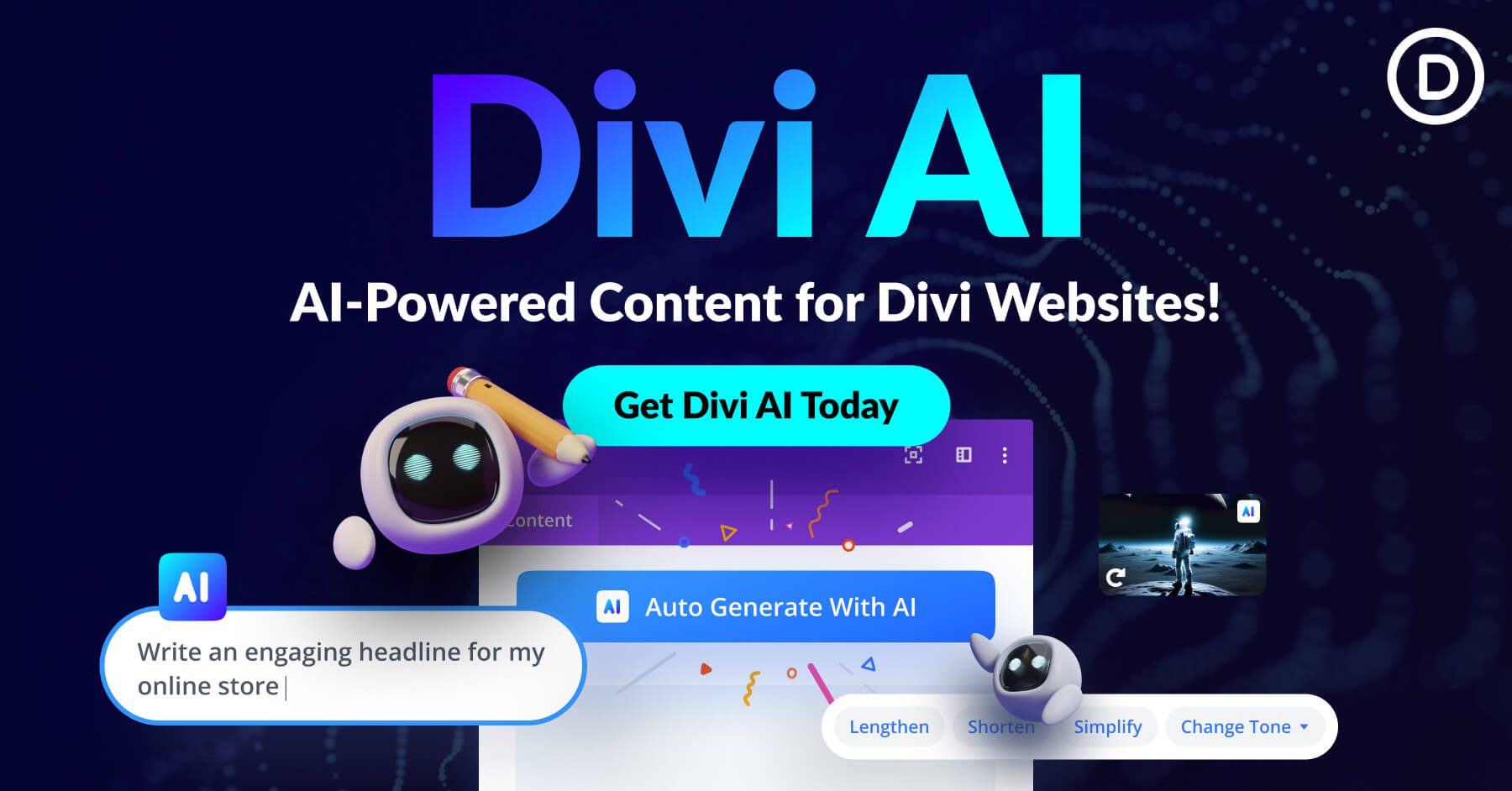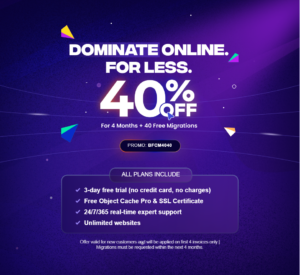There are over a billion websites on the internet and that number grows every day. This makes web development a lucrative business. It’s something you can do from home as a 1-person business and scale into a large web design agency. Divi is the perfect WordPress theme for building websites. In this article, we’ll look at how to make money building Divi websites.
Why Build Websites?
Web development is in high demand. Lots of people and companies need new websites or old websites rebuilt, so there is a lot of work available. It can be done part-time or full time. It has low startup and operating costs. The barrier to entry is fairly low. There is competition, but there are a lot of customers and each designer is unique. The income potential is significant.
Why Build Websites with Divi?
It’s possible to build a web development company using Divi exclusively. Many designers have done this. Divi is a great choice because it’s easy to use and it speeds up the design process. The drag-and-drop builder is intuitive and you can make most of the adjustments from the built-in controls. It’s expandable through plugins and code, and you can get child themes and layouts to save time.
Skills You’ll Need
You’ll need two main skill-sets:
Web Design/Development Skills
Web designers usually focus on either the frontend design, such as the layout and graphics, or backend development, such as writing code to add new features. Divi makes it easier to blend the two.
Divi has added so many features that you can build lots of custom designs just from the settings built into Divi. At the same time, it’s easy to integrate code into Divi to add new features. It’s well-suited for beginners and advanced users.
Here’s a list of the most common skills you’ll need to have yourself or have access to:
- WordPress
- Divi
- Layout design
- Color theory
- HTML
- CSS
- Copywriting
- Image editing
- eCommerce
- SEO
Any of the skills you’re lacking in can be performed by a freelancer or partner. You’ll need to determine the client’s needs and build the site based on those needs. You might need to offer suggestions for hosting. You could even provide ongoing services such as training, maintenance, and hosting.
You’ll find information about many of these skills from the many Divi blogs, tutorials, videos, courses, and groups. For more information about how to learn to develop websites with Divi, see 7 Best Resources to Learn Divi.
Business Skills
It’s not enough to know how to build websites. You’ll also need to know how to manage your business. Here are a few business skills you’ll need:
- Business planning
- Pricing
- Business management
- Marketing
- Communication skills
- Team leadership
- Project management
- Accounting
- Productivity
- Waste reduction
These skills are beyond the scope of this article, but you can learn more about business management in many places including Skillshare, LinkedIn Learning, etc.
Things you’ll need
Aside from good quality computer hardware and an internet connection, there are several things you’ll need to start your web development business with Divi. For a more detailed discussion, see the article What You Need to Make Money with Divi.
Elegant Themes license
You can purchase an Elegant Themes membership by the year or lifetime. It includes access to Divi, Extra, Bloom, Monarch, the Divi Builder plugin (for use with non-Divi websites), support, and updates.
The ET license includes a tool to create and manage license keys that you can use on client’s websites. You can name them so you’ll know which clients they belong to. You can also delete them, which disables the updating and ET layout importing features.
Decide on your services
Determine the exact services you want to provide. Don’t try to provide anything and everything. Be specific so your clients know exactly what to expect. Start with a few things that you’re comfortable with and add services as you grow.
For example, you might start with basic brochure-style websites and then grow into eCommerce websites using WooCommerce or educational sites with learning management systems such as LifterLMS.
Divi toolbox
Rather than building from scratch every time, start a collection of child themes, layouts, plugins, code snippets, graphics, icons, tutorials, etc., to help give you a head start on your designs.
Website
Your website will show potential clients the quality of your work, provide a place to see examples of work you’ve done, read testimonials from previous clients, see the services you provide, and contact you to get started on a project.
Building your own website is a great way to learn the design and building process of Divi web development. You’ll also use the site for marketing and possibly selling products as well as services.
Portfolio
Before you can get well-paying clients, you’ll need examples of work to show. This means you’ll need to build a few free or cheap websites. You’ll only need a few, so this isn’t something you’ll need to advertise or continue once you have a few websites for your portfolio.
The best options are to build for non-profit organizations and friends and family. Contact those that you know will appreciate it the most. Make sure they understand that you won’t continue free work and they shouldn’t tell anyone that you built their website for free.
Email list
Create an email newsletter so you can stay in touch with clients and potential clients. Don’t spam their inbox, but do let them know of services you’ve added, deals, etc.
Facebook Page
Even though you’ll have a website to show your work and make it easy for clients to contact you, you’ll grow your business much faster if you’re active on social media. Create a Facebook page for your website and share information and examples of work you’ve done and insights into the web design process. This makes it easier for people to get to know you.
Getting Clients
Once you have your website built and a few example websites in your portfolio, start pitching to potential clients. There are several ways you can find clients.
Friends and family
Start with people you know. Lots of people want websites and they’re usually more comfortable working with someone they know. If friends and family don’t need a website, there’s a good chance at least one will know someone that does.
Social media
Contribute to groups and online communities. You’ll meet a lot of people in need of help or who can point you to potential clients.
Don’t pitch to everyone, but do make it easy to know that you build websites. Answer questions and be helpful. People will take notice and see you as an authority in the field. When they need a website built, or when they know someone that needs one built, they’ll think of you.
Local businesses and organizations
Lots of local businesses and organizations need new websites built or old websites improved. Many would be willing to hire web designers but they don’t take the time. It’s often easier for them to hire a local designer that comes to them.
Networking
Join networking groups, meetups, events, and workshops in your local area to build your network of potential clients and partners. Shows such as WordCamp, industry events, business shows, etc., can get you on the radar of many companies that are looking to hire or network with website designers. Build relationships with other web developers and take advantage of referrals or joint projects.
Testimonials
As soon as you’ve completed a project ask the client for a testimonial to use on your website, in your newsletters, ads, and social media. Also, ask for Google and Facebook reviews.
Ask for referrals
Once your project is complete, ask the client for referrals. This will provide you with a list of potential clients that you can pitch to.
Blog and podcast
Create tutorials on your blog or on a YouTube channel to help build your audience. This will build your subscriber list and authority.
Advertising
Creating ads on social media platforms and Google is a great way to gain attention for your services. Facebook ads are particularly popular for web design businesses.
Discounts and sales
Offer a discount for specific things, such as first-time clients, upgrades, ongoing services, referrals, etc.
Growing your Divi Web-dev Business
Once your business is launched and working smoothly, it’s time to grow.
Be professional
Be the kind of business you’d want to hire. Meet your deadlines. Deliver professional quality work. Be there when they need you. Treat clients like they matter to you. Never make promises you can’t live up to. Instead, over-deliver on your promises.
Expand your niche
As you start, it’s best to choose a niche to specialize in. This can help you become better and more efficient in developing certain types of websites. Clients that need those sites are more likely to come to you. Then, you can expand your niche as you grow and scale your business.
Add new services
Start by creating websites, but don’t stop there. Add training, SEO optimization, ongoing maintenance, eCommerce, graphic design, photography, video, advertising, social media management, content strategy, content creation, e-books, hosting, and more.
Ending Thoughts
That’s our look at how to make money building Divi websites. This is only scratching the surface of this vast topic, but these basics show what you need to get started in your web development career.
Web development is an easy business to start and has a low start-up and operating cost. It can turn into a significant (six-figure) income. Well-designed websites are in high demand and it’s something that can be done alone or with a team. You can start small and scale it as you want. No degree or certifications are required. Like many businesses on the web, the best time to start is now.
We want to hear from you. Do you have any tips to add? Let us know in the comments.







0 Comments